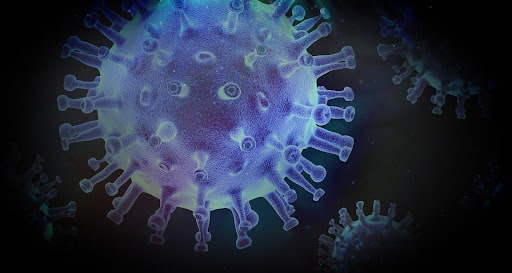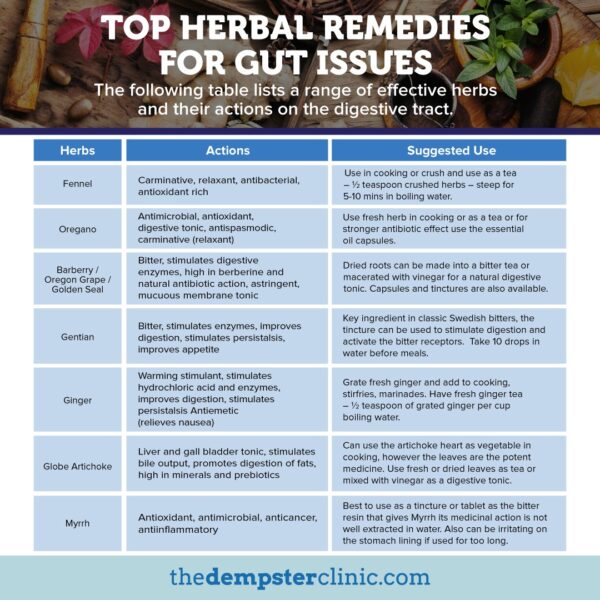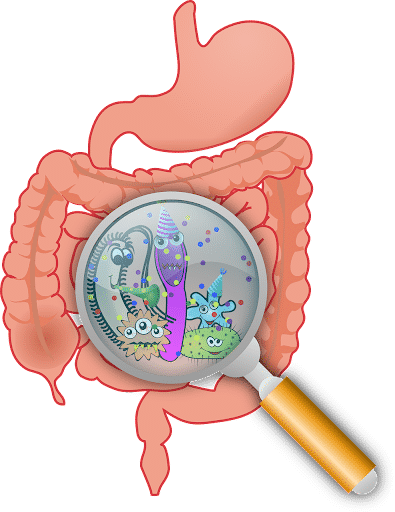If you had to guess how many microorganisms live in a person’s gastrointestinal (GI) tract, what would you say? 50 million? 700 million? Maybe even 7 BILLION?
Well, turns out our GI tract hosts an astounding 100 trillion microorganisms, most of which are bacteria, followed by viruses, fungi and others. This plethora of living organisms basically create a virtual organ in our body and its healthy functioning is absolutely vital for our health.
While we are all familiar with the “healthy bacteria” that help us with digestion, most people aren’t aware of numerous benefits that come with a balanced level of gut microbiome (also known as microbiota), such as:
- Proper gut-brain signaling
- Regulation of anxiety, mood and cognition
- Stronger immune response
- Role in avoiding chronic diseases
- Improved metabolic function
- Production and absorption of vital nutrients
- Inflammation control
- Hormone and neurotransmitter support
Changes in gut microbiome caused by antibiotics, illness, stress, aging, bad dietary habits and lifestyle can influence the development of chronic diseases, contribute to weight gain, depression and high blood pressure, lead to inflammatory bowel disease (IBD) and irritable bowel syndrome (IBS), cause metabolic changes, cardiovascular problems, and result in gastrointestinal disorders and colorectal cancer. So, the disbalance in these microorganisms (dysbiosis) can become the cause of inflammatory bowel disease, diabetes, liver disease, cancers, obesity, etc.
Basically, if you care about gut health, mental health immunity, metabolism, hormone balancing, neurobehavior, and your quality of life in general, you should care about your gut microbiome as well!

So, how does gut microbiota manage to do all this?
First and foremost, it starts with fermentation of non-digestible substrates. This process promotes growth of special microbes that produce short chain fatty acids (SCFAs) like butyrate, acetate and propionate. These SCFAs are directly responsible for various functions listed above. Making sure that your gut has a healthy balance of microorganisms and that your body has an appropriate amount of SCFAs is crucial for healthy living.
Determinants of gut microbiome health:
But what determines the healthy composition and functioning of the gut microbiome? There are several major factors that play role in gut health:
- Age: human gut microbiota develops as soon as we are born and exposed to microorganisms around us. Developing a full range of microbiota takes a few years and its level and composition can fluctuate as we age. Some changes are natural and harmless, while others can be undesirable. As we grow old (especially over 70), the comorbidities related to gut microbiome increase, however it is still unclear what the relationship between the two is: is aging causing microbiome to change or is microbiome change contributing to aging.
- Diet: changing dietary habits in the past few decades has led to not only increasing obesity, metabolic diseases and inflammation, but also changes in gut microbiota. The chain goes like this: diet shapes microbiome, microbiome regulates the risk of diseases. So, the food that goes into our body REALLY matters. I will be mentioning some specific foods that are great or not so great for gut health below.
- Stress, tobacco and alcohol: studies have shown that all three factors can cause negative shifts in our gut microbiota composition. Stress for example increases gut barrier permeability, which allows bacteria to enter the circulation and cause inflammation. Alcohol for example changes composition and function of gut microbiota which can result in alcoholic liver disease.
- Medication: it is a commonly acknowledged fact that certain medications can alter the composition of the microbiome and even increase the risk of antimicrobial resistance. Some of the drug categories that were shown to do that include certain diabetes medications, antibiotics for treating bacterial infections, laxatives and proton pump inhibitors that are used to treat various gut issues. So, some of the medication you’re taking could be obliterating your gut microbiome and causing other, more serious issues in your body.
- Exposure to pathogens: and finally, it is no surprise that if pathogenic or “bad” bacteria end up in your gastrointestinal tract, they can start competing with your helper bacteria and defeat them, causing disbalance and inflammation in your gut.
So, if a person changes lifestyle & diet, has weakened immunity and recurring infections and is using medications for a prolonged period of time, they should be aware of possible changes in their gut microbiome and the resulting health risks.
If you would like to read more about the signs of unhealthy gut and my recommendations for improving gut health, you can read more about that here.

Signs and effects of gut microbiome disbalance:
Imbalance in the gut microbial community caused by a disease is often referred to as dysbiosis. There are three types of dysbiosis: 1. Caused by losing good bacteria. 2. Caused by excessive growth of bad bacteria. 3. Caused by decrease in overall gut microbiome (both types of bacteria)
Since gut health is important for so many parts of our body, the disbalance can reveal itself through many different symptoms. These include:
- Digestive problems and acid reflux
- Urination problems
- Chronic fatigue
- Food intolerance, bloating
- Inflammation
- Anxiety and depression
Even though dysbiosis is a root cause of many diseases, doctors often overlook it and fail to properly diagnose it. As a result, patients don’t recover, take tons of unnecessary pills and still suffer from symptoms and medical conditions caused by dysbiosis. So, getting proper tests and examining your gut, could hold the answers to your health problems.
We, at The Dempster Clinic – Center for Functional Medicine harness the power of lab testing to identify the root cause of your health problems. By focusing on your unique health goals, utilizing and interpreting data uncovered by selected lab tests, taking and reviewing your medical history – we help you formulate a Naturopathic Medicine program customized to you and your health issues.
Role of Nutrition & Supplements
According to the Canadian Digestive Health Foundation, over 20 million Canadians experience uncomfortable and sometimes downright debilitating digestive problems each year. But there are nutrients and “gut superfoods” proven to improve the microflora in your intestines. These include yogurt, garlic sauerkraut, ginger, whole grains, fennel, papaya, apples, kefir and bone broth (I have an entire article dedicated to amazing results of bone broth). For strategies to boost healing effects of these gut-healing “superfoods”, click here.
When you join the Healthy Gut Institute, I’ll provide you with recipes and food options that you can use to help heal your gut. Also, I’ll take you through other proven methods to help restore gut flora and heal intestinal permeability.

